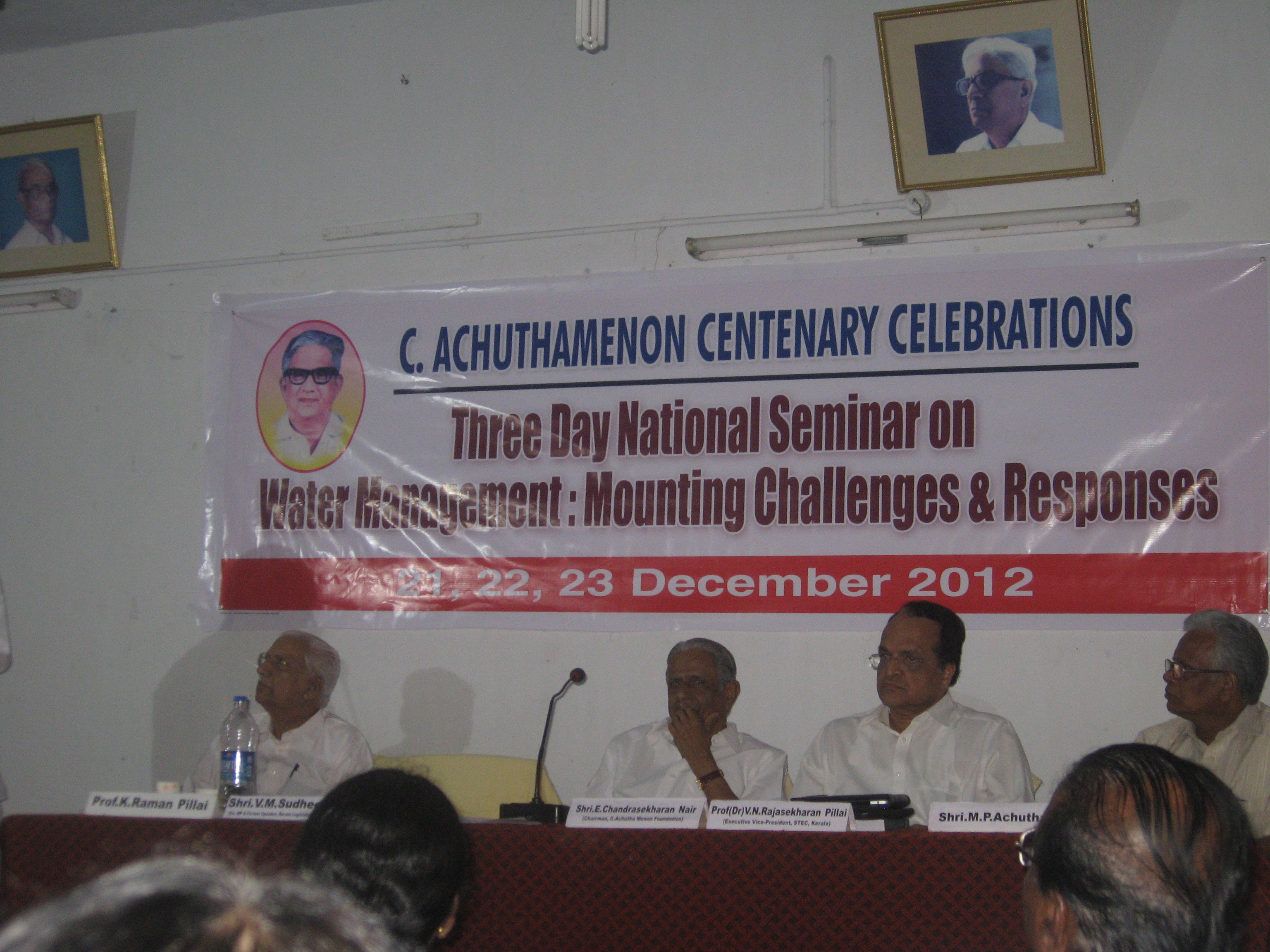/topics/rainfed-agriculture
Rainfed Agriculture
The Himalayan states - are they India's crown jewels or distant cousins?
Posted on 04 Jul, 2013 10:25 AMLeft, right, up, down...bump, bump, bump! That was me… being thrown about on all sides of the jeep that I was in. No, I wasn’t off-roading! I was on an investigative mission to Pinrow, a village in Nainital district, Uttarakhand from my home. I was investigating the impact of the state government's push for 100% of child births to happen in the hospitals.

Celebrating Uttarakhand
Posted on 17 Jun, 2013 05:14 PMThroughout history, the Uttarakhand Himalayas have been a source of timber and water to the rest of the nation. However, this has led to severe depletion of resources in the state. Today, the mountain communities find it hard to meet their basic needs of fodder, fuel and water.

Drought-free in Maharashtra – six small villages, one big lesson
Posted on 10 Jun, 2013 02:09 PMMaharashtra is reeling under a drought – one of the worst in the last 40 years. The state declared drought in 125 out of 358 talukas during kharif 2012-13, and then declared water scarcity in 3,905 villages in rabi 2012-13.

Book review - ‘Conserving resources in the Himalayas’
Posted on 09 Jun, 2013 07:29 AMUttarakhand is blessed with an immense amount of natural resources such as forests, wildlife and water, but if you are looking for some research-based information that quantifies, classifies and organizes this information, there isn’t much out there.

Why participatory groundwater management is no longer an oxymoron: The story of Randullabad
Posted on 15 Apr, 2013 06:04 PMIndia is heavily dependent on groundwater use. Domestic use, agriculture and industry all rely on groundwater extracted by means of pumps, wells and tanks. This dependence is illustrated by falling groundwater levels. Frequently, this overuse and consequent decline trigger conflicts.

A farmer intrinsically trusts the land, says 'Timbaktu' : A national-award winning film on an organic farming movement in Andhra Pradesh
Posted on 22 Mar, 2013 09:58 AM'Timbaktu' describes the motivation, efforts and results of the Timbaktu collective started in the 1980s by Mary and Bablu Ganguly. Just as important, it narrates the story of a couple with a dream, and how they made it come true.
A commerce ex-lecturer from Karnataka's Udupi district converts 25 acres of barren land into a lush green farm through rainwater harvesting
Posted on 20 Mar, 2013 05:46 PMThis story of the untiring efforts of a commerce ex-lecturer to convert twenty five acres of a barren piece of land into a self sustainable green farm, provides an ideal example of a model for rainwater harvesting and demonstrates how persistence and the sheer determination to go on till the end, can yield miraculous results.

Water management - Mounting challenges and responses - A report on the three day seminar jointly organised by KSCSTE and C Achutha Menon Foundation, Trivandrum from the 21st to the 23rd December 2012
Posted on 14 Mar, 2013 10:12 PMThis three day national seminar was jointly organised by the Kerala State Council for Science, Technology and Environment (KSCSTE), Thiruvananthapuram, and the C Achutha Menon Foundation (AMF), Thiruvananthapuram, Kerala and included presentations and discussions on a range of water related themes such as water scarcity, water conservation, commercialisation of water, water conflicts and water management.
The seminar aimed at creating awareness and triggering a dialogue among scientists, academicians, researchers, activists, as well as lay people on the emerging challenges related to water resources, water quality and water conservation in the state of Kerala. The seminar was inaugurated by Shri V M Sudheeran, Ex MP and former speaker, while Dr Rajasekaran Pillai, Executive Vice President KSCSTE, delivered the keynote address with the felicitation by Shri M P Achuthan, MP.
The seminar included discussions under five different themes related to water issues that included water scarcity, water conservation, commercialisation of water, water as an new area for conflicts and water management.

The three day seminar on water management at the Achuta Menon Foundation, Trivandrum, Kerala
How have India's flagship development programmes fared ? - Budget briefs on the TSC, JNNURM and MGNREGS by the Accountability Initiative
Posted on 12 Mar, 2013 11:40 AMGovernment of India’s development programmes are aimed to bring in much required inclusive development and pave a way towards an equitable and socially just society. With this motive the Centre had introduced several programmes in social sectors and allocated a fixed amount for achieving the set goals.
An analysis on the performance of the programmes shows how far the targets have been achieved, the shortcomings and the steps that are to be taken to strengthen the programmes.

Need for an ecologically sound agricultural system - A video interview with Ardhendu S Chatterjee
Posted on 07 Mar, 2013 05:22 PMIndian agriculture has changed. From earlier a lifestyle to now livelihood, our farming has journeyed through revolutions. Food production increased but so did the problems of depleting soil fertility and rising debt. The green is fading and an evolution is now sought.




